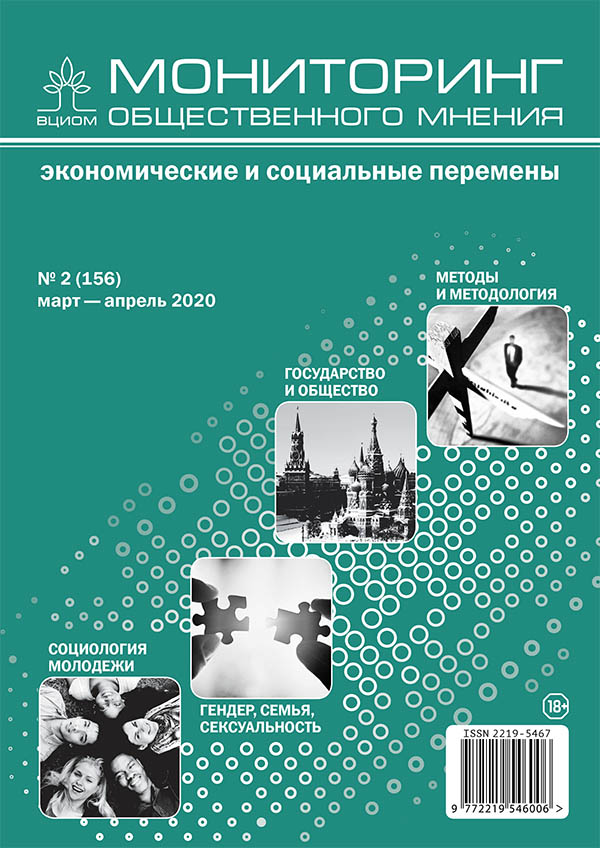Impact of people’s expectations on macroeconomic parameters: an econometric assessment (Russia’s case study)
DOI:
https://doi.org/10.14515/monitoring.2020.2.666Keywords:
inflation expectations, economic growth, labor productivity, rate of accumulation, modelAbstract
The article discusses the influence of social mental superstructure on fundamental economic parameters. To be more specific, the focus of the study is the relationship between virtual characteristics of the economic system (people’s inflation expectations, expectations regarding production dynamics) and real macro variables (consumer price index, economic growth rate, workforce productivity, rate of accumulation). The authors use a number of ways of quantifying the initial survey data to digitalize people’s expectations and the Rosstat data to analyze macro variables. The authors designed econometric relationship between the given variables tested for statistical significance. The models are based upon yearly data (from 2014 to 2017); to find the value of time lag a preliminary calculation of matching correlation coefficients is made.
Calculation confirms that there is a connection between people’s expectations and macro variables. The introduced distinction between “light” macro variables (which are subject to rapid change) and “heavy” macro variables (which have poor response to shocks) helped to establish a more general regularity in these connections. As the macro variables become heavier, their connections to people’s expectations get lighter, the connections become less stable, and the response time goes up. The authors propose possible uses of the obtained results in the short-term forecasting of the key economic variables.
Acknowledgments. The article is part of the state task of the Russian Government to the Financial University for 2020 (project no. АААА-А19-119080990043-0).






